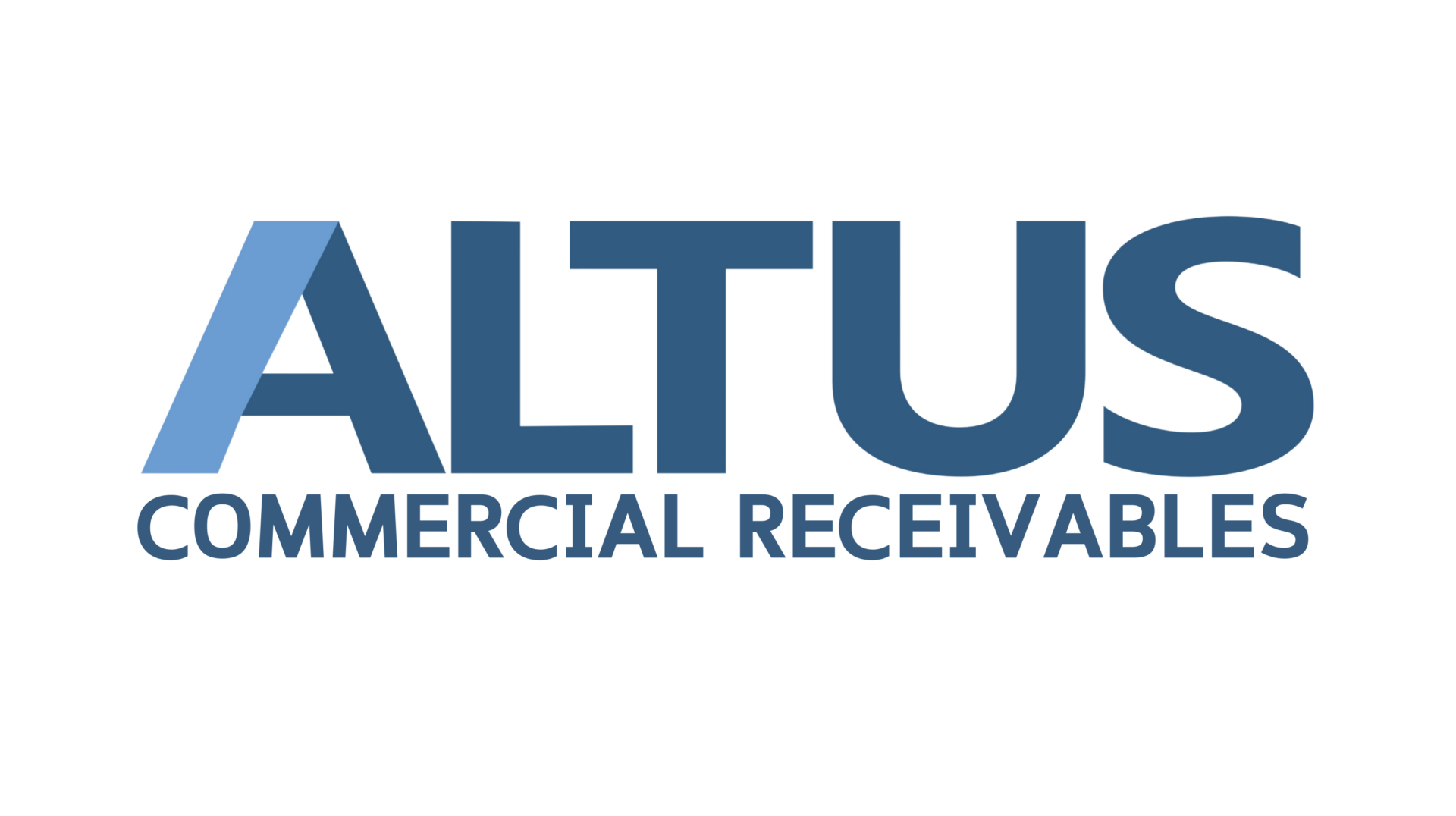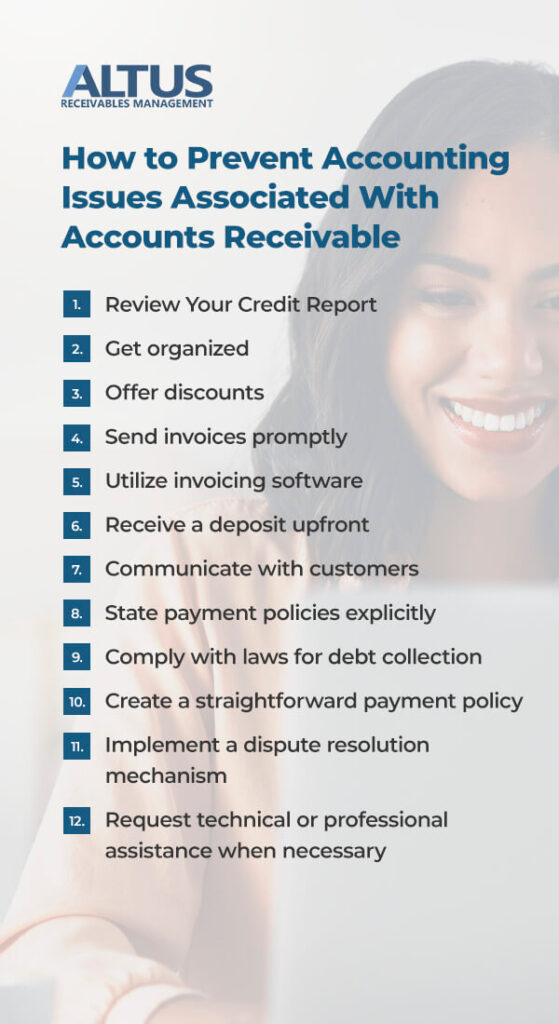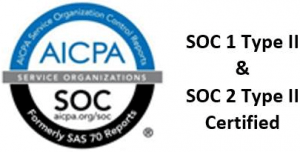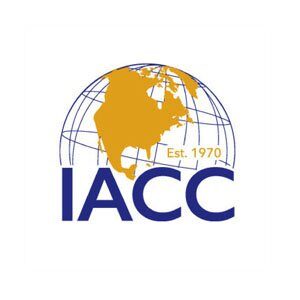
Many businesses have an accounts receivable policy that details when and how much should be billed and when the amount should be collected. Though an essential policy, not every company executes this policy effectively.
If your business has monthly revenue tied up due to overdue invoices, you may be facing some common issues related to accounts receivable, which can affect the amount of liquid cash your businesses has on hand. Outstanding accounts receivable can bottleneck your cash flow and drain the capital needed for investing in new equipment and growth opportunities.
To help you determine if you’re dealing with issues related to accounts receivable, we cover common accounts receivable challenges and how to prevent accounting issues associated with accounts receivable.
Common Accounts Receivable Challenges
Credit can be used to grow your customer base and gain loyalty. If you offer several payment options without a plan in place, your business may face deficiencies in cash flow and jeopardize operations. The following are some of the common accounts receivable challenges you may face:
- Invoicing errors: Invoicing errors and the disputes that follow can lead to payment delays. Invoicing errors you may notice are errors in the number of goods, dollar amounts, tax calculations, and payment due dates.
- Invoice disputes: In some cases, a customer may dispute an invoice. If this happens, you may need to work with the customer toward a resolution, which can be a timely issue.
- Lack of incentives: Without incentives, some of your customers may let an invoice become past-due. To combat this, you can offer incentives for early payment like discounts.
- Receivables timing: Receivables should be valued when they’re due, which doesn’t always coincide with when the amounts are collected. Timing issues can lead to payments coming in after an accounting period ends, and this can make it difficult to properly value accounts receivable.
- Identity theft: Identify theft can be a major issue and lead to fraudulent charges on an account.
- Impractical policies: Impractical policies for accounts receivable management can undercut your business. These policies can result from ideas like new payment options or credit incentives that are suggested or implemented without consideration of the impact on the accounts receivable process. When you have a well-structured credit policy, you can discern between those who could be great customers and those who may not.
- Payment difficulties: If your customers face payment difficulties or a lack of payment options, they may abandon making a purchase during checkout. You should also make it clear which payment methods you accept.
- Late invoice payments: Sometimes, customers may forget about invoices or lack the funds to pay. Overdue invoices or late payments can lead to cash flow problems.
- Allocation of bad debts: The issue of allocating bad debts can happen when a customer doesn’t pay their invoice, which can result in a loss for the business.
- Ledger disorganization: Organized invoices are essential to knowing who owes you money, how much you’re owed, and when you can expect to get paid. Inadequate accounts receivable management may result in a cash-flow deficiency, which is why it’s essential to implement a system that gives you complete visibility for responsible accounts receivable management.
- Lack of reliable invoicing: Without a reliable system for invoicing, you may not be able to effectively track your customers and the details of their invoices.
- Lack of management system: Without an effective accounts receivable management system, your business may struggle to stay on top of invoices and payments.
- Lack of prompt follow-ups: To ensure customers pay their invoices in a timely manner, you may need to regularly follow up with them.
- Inconsistent payment policies: If you lack an effective or consistent payment policy, your customers may be uncertain about how much they have to pay or what to expect.
- Allowance for doubtful accounts: The allowance for doubtful accounts is a common practice in the valuation of accounts receivable. The allowance for doubtful accounts refers to when a business puts aside money to cover unpaid invoices.
- High Days Sales Outstanding (DSO): DSO refers to the average amount of time it takes for a credit sale to be converted into cash. If you have a high DSO, your customers take too long to finalize their debts and don’t adhere to the agreed-upon payment terms. Compare your DSO to the industry average and ensure the credit plans you offer don’t exceed what you can afford.
- Payments applied to wrong invoices: If you receive a payment but apply it to the wrong invoice, this can become a common problem in accounts receivable.
- Disorganized accounts receivable data: If you rely on a manual method to manage your accounts receivable, this could lead to inefficient data storage and sharing. Disorganized data may also result in inefficient reconciliation and collection efforts.
- Estimation of uncollectible receivable value: There can be an issue with estimating the uncollectible receivable value. This process can be challenging, as you must assess a customer’s ability to pay.
- Inadequate communication with customers: Establishing points of contact and communication channels is crucial at the start of a relationship with a customer, especially if you want to get paid on time. To maintain an adequate flow of information, keep track of every time you communicate with a customer and via which channels this communication occurred.
- Incorrect or missing information on invoices: If you’re dealing with numerous invoices, errors can occur. For example, a staff member may accidentally input the wrong amount, omit discounts, or enter the wrong invoice number. If you forget to include the overdue policy on a large, past-due invoice, you could miss out on a valuable late fee.
- Miscommunication with the accounts receivable team: When miscommunication occurs among your accounts receivable team, this can lead to several issues for your accounts receivable process, such as poor tracking and lack of visibility.
How to Solve Accounts Receivable Issues
Managing accounts receivable successfully is an essential part of running a business. As noted above, several potential problems can arise during the accounts receivable process. If your accounts receivable team is aware of these issues, they can take steps to prevent these issues from arising and ensure your business continues running smoothly.
To help solve these accounts receivable issues, consider the steps below:
- Regularly review your payment and credit policy.
- Incentivize customers with discounts for early payments.
- Work with a B2B collection agency to resolve overdue accounts.
- Negotiate with your customers to create reasonable payment plans.
- Send out reminders to customers for outstanding payments on services or goods.
- Remain on top of your invoices and ensure you receive prompt payments by using an invoicing system and following up with your customers.
No matter which strategy you choose for your accounts receivable, stay on top of this process and quickly take action if any issues arise. When you do so, you can prevent problems later on.
Effect of Accounts Receivable Issues
There are a few issues that could arise from accounts receivable problems or errors, such as:
- Wasted time: Some common accounts receivable errors are due to manual processes performed by overworked staff. When errors occur, your team then has to dedicate additional time to resolving these issues. This wasted time could’ve otherwise been spent on higher-value tasks like reporting, forecasting, or financial analysis.
- Financial losses: Your business may experience financial losses if a payment is applied to the wrong invoice or an invoice contains inaccurate information. Because you may fail to collect the proper payment on outstanding invoices due to these errors, you could lose money. Even invoices paid late are considered a financial loss, as you have less cash available while you wait for payment.
- Negative impact on customer relationships: Customer relationships can be affected by errors in accounts receivable. The more errors that occur, the less forgiving a customer may be. This can quickly become a major problem for your company, as it may impact your reputation and lead you to lose customers.
How to Prevent Accounting Issues Associated With Accounts Receivable
To keep your business successful, you need to receive the payments you’re owed. Late payments can put a strain on your company’s finances, so follow the tips below to prevent accounting issues associated with accounts receivable:
- Stay informed: Review the law and stay up-to-date on changes that could impact your accounts receivable process like new regulations that govern debt collection.
- Get organized: Getting your accounts receivable organized can help you keep track of which customers owe you money and when their payments are due. Implement a system that enables you to automatically send reminders and follow up with customers with overdue invoices.
- Offer discounts: You may be able to encourage customers to make their payments before their due dates by offering a discount. This might allow you to avoid late payments or unpaid invoices.
- Send invoices promptly: You may be able to avoid late payments by promptly sending invoices once the work is completed. You could also include late fees in invoices to incentivize customers to make their payments on time.
- Utilize invoicing software: With invoicing software, you can easily track which customers owe you and when their payments are due. Use this software to avoid surprises and remain on top of your accounts receivable. If you’ve been relying on a manual method for managing your accounts receivable, now may be the time to make the transition.
- Receive a deposit upfront: If you can, ensure you get deposits from customers before you begin working on a project. When you get an upfront deposit, this ensures you are paid at least some amount, even if the customer doesn’t pay the remainder of their bill.
- Communicate with customers: Communicate clearly with your customers to ensure they understand the payment options and methods your business offers. Be sure to communicate with any customers from whom you’re struggling to collect payments. The sooner the issue is resolved, the better off your business will be.
- State payment policies explicitly: If you’ve been shying away from explicitly detailing your payment policy for fear of losing customers, you may actually be damaging your customer relationships and risking legal complications. Your payment terms should be stated explicitly and clearly, including interest charges and late fees. State your policy on invoices and sales orders, along with including it on your payment portal and website.
- Comply with laws for debt collection: Federal and state laws, like the Fair Debt Collection Practices Act, regulate collection practices. If anyone in your company unknowingly or knowingly violates these laws, your business may be vulnerable to legal action. Train your staff on these laws and keep them up-to-date on any changes. Learn more about Altus’s security compliance.
- Create a straightforward payment policy: Ensure your customers are aware of exactly how and when you expect them to pay their bills. Having a clear, straightforward payment policy helps avoid confusion among your customers. This may also make your customers more likely to make their full payments.
- Implement a dispute resolution mechanism: Prepare for potential bad debts ahead of time by implementing a process that can quickly resolve disputes.
- Request technical or professional assistance when necessary: If your current resources are making it challenging to manage your accounts receivable, seek assistance from a collection agency or update your technology to make the process more efficient.
How to Manage Accounts Receivable
Successful accounts receivable management allows you to promptly collect payments while you maintain a good relationship with each of your customers. Your business can choose from several strategies to manage your accounts receivable, such as offering early payment discounts, sending reminders about overdue invoices, and setting up payment plans.
Some ways you can optimize your accounts receivable process include:
- Accept electronic payments only.
- Write a clear, concise credit policy.
- Ensure employees know your credit policy.
- Promptly follow up on outstanding invoices.
- Deliver certified, automatic receipts to customers.
- Maintain accurate records of payments and invoices.
- Reduce costs with flat-rate payment processing plans.
- Allow customers to securely save their payment options.
- Offer no-fee payment options for your preferred payment methods.
- Automate methods for reconciliation, follow-ups, and sending invoices.
- Use a convenience fee to discourage payment methods you don’t prefer.
- Establish clear communication between your collections, accounting, and sales departments.
- Review your accounts receivable processes and list the challenges your company faces.
Contact Altus to Solve Accounts Receivable Problems
At Altus, we provide global commercial collections services and accounts receivable management services. Our team works on behalf of your business to retrieve debt from your customers.
We combine advanced technology with the largest international network of certified, trained professionals to streamline first-party commercial collections and third-party commercial collections at high levels of compliance and security. We can help you gain new levels of control and confidence over your credit-to-cash cycle.
We have expertise in the following industries:
- Manufacturing
- Financial services
- Software and technology
- Distribution and transportation
- Advertising, media, and publishing
Trust us to boost your organization’s accounts receivables cycle. Contact us at Altus to learn more about accounts receivable management problems and solutions.









